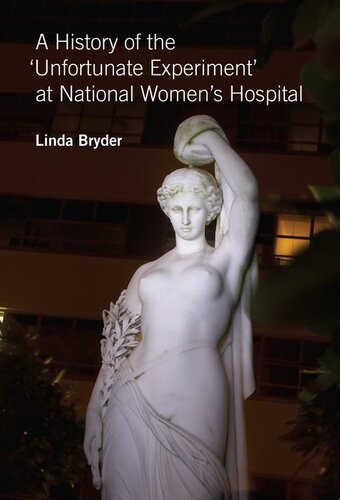مشاهده سبد خرید “Palliative Care and Ethics 2014” به سبد خرید شما اضافه شد.
| تعداد صفحهها |
280 |
|---|---|
| نوع فایل |
epub |
| حجم |
448 Kb |
| سال انتشار |
2013 |
89,000 تومان
دانلود ۳۰.۰۰۰ کتاب پزشکی فقط با قیمت یک کتاب و ۹۹ هزار تومان !
توضیحات
در اواخر دهه 1980، یک اعتراض ملی به دنبال انتشار مقاله ساندرا کونی و فیلیدا بونکل “تجربه تاسف بار” در مجله مترو در مورد درمان سرطان در محل در بیمارستان ملی زنان رخ داد. این مقاله تحقیقاتی را به رهبری قاضی سیلویا کارترایت برانگیخت که عملکرد پزشکان بیمارستان را متهم کرد و منجر به شکایت، محکومیت، برنامه غربالگری ملی و انقلابی در روابط پزشک و بیمار در نیوزیلند شد. در این کتاب که به دقت تحقیق شده است، دکتر لیندا بریدر، مورخ پزشکی، تجزیه و تحلیل مفصلی از درمان ملی سرطان در محل زنان از دهه 1950، ارزیابی اقدامات پزشکی بینالمللی و تاریخچه جنبش سلامت زنان ارائه میدهد. من به تعدادی از سوالات کلیدی پرداخته ام. آیا درمان در زنان ملی یک “تجربه ناگوار” بود؟ آیا مطابق با استانداردهای بین المللی نبود؟ آیا هرب گرین و همکارانش بیشتر از بیمارانشان به علم اهمیت می دهند؟ آیا زنان در نتیجه مردند؟ منشأ این رسوایی چیست؟
توضیحات(انگلیسی)
In the late 1980s, a national outcry followed the publication of Sandra Coney and Phillida Bunkle's 'Unfortunate Experiment' article in Metro magazine about the treatment of carcinoma in situ at National Women's Hospital. The article prompted a commission of inquiry led by Judge Silvia Cartwright which indicted the practices of doctors at the hospital and led to lawsuits, censure, a national screening programme and a revolution in doctor-patient relations in New Zealand. In this carefully researched book, medical historian Dr Linda Bryder provides a detailed analysis of the treatment of carcinoma in situ at National Women's since the 1950s, an assessment of international medical practice and a history of the women's health movement. She tackles a number of key questions. Was treatment at National Women's an 'unfortunate experiment'? Was it out of line with international norms? Did Herb Green and his colleagues care more for science than for their patients? Did women die as a result? And what were the sources of the scandal that erupted?




